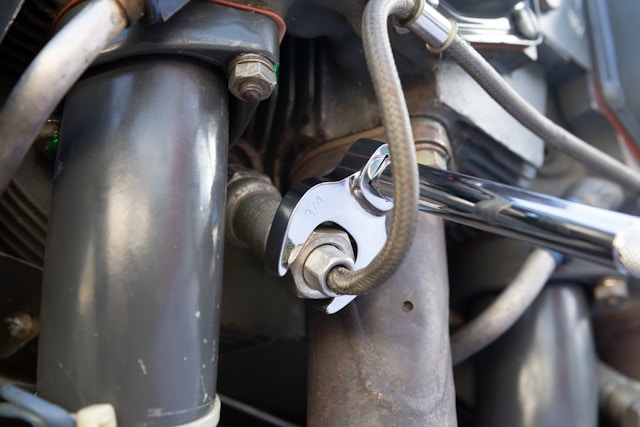Hydraulic oil, often called hydraulic fluid, is vital in various industrial and mechanical systems. Its primary function is to transmit power within hydraulic machinery, facilitating the smooth operation of equipment ranging from hydraulic brakes to heavy machinery. Understanding hydraulic oil’s properties, types, and applications is essential for ensuring optimal performance and longevity of hydraulic systems.
Composition
Hydraulic oil is formulated from base oils and a combination of additives tailored to specific applications. These additives enhance the oil’s lubricating properties, prevent corrosion, and improve viscosity under different operating conditions. Hydraulic oil Charlotte, NC, the composition may vary depending on factors such as temperature range, pressure requirements, and environmental considerations. Hydraulic oil plays a crucial role in the operation of machinery by transmitting power and lubricating moving parts. The demand for high-quality hydraulic oil is significant to ensure the efficient performance of machinery in various sectors, including manufacturing, construction, and transportation.
Benefits and Applications
Hydraulic oil is extensively used in various applications, including hydraulic systems in manufacturing plants, construction equipment on job sites, and agricultural machinery on farms. Its ability to transmit power efficiently, withstand high pressures, and operate in diverse environmental conditions makes it indispensable in various regional industries. Hydraulic systems in manufacturing plants rely on hydraulic oil to power machinery and equipment, ensuring smooth and precise operation in metal fabrication, plastic molding, and assembly line production. Similarly, construction equipment, including excavators, bulldozers, and cranes, depend on hydraulic oil to operate hydraulic cylinders and motors, enabling them to lift heavy loads, dig trenches, and maneuver with precision on job sites. Additionally, hydraulic oil plays a crucial role in agricultural machinery, powering hydraulic systems in tractors, combines, and harvesters, essential for planting, cultivating, and harvesting crops efficiently.
Factors to Consider When Choosing Hydraulic Oil
Selecting the right hydraulic oil is crucial for maximizing system performance and lifespan. Viscosity grade influences oil flow efficiency under various temperatures and conditions. Different systems may require specific viscosity grades for proper lubrication and power transmission. Compatibility with system materials is vital to prevent premature wear and damage. Opting for environmentally friendly oils meeting regulatory standards minimizes the ecological impact. High biodegradability and low toxicity are crucial, especially in environments prone to oil leakage. Regulatory compliance is essential, ensuring safe and efficient operation according to industry standards like those set by the American Petroleum Institute (API) or the International Standards Organization (ISO).
Maintaining Hydraulic Systems
Proper maintenance of hydraulic systems is essential for preventing costly downtime and prolonging equipment lifespan. Regular inspection of components like hoses, seals, valves, and cylinders helps technicians identify wear, leakage, or damage before they escalate. Monitoring fluid levels and conditions ensures consistent operation and helps detect contaminants that can compromise performance. Timely oil and filter replacements maintain system integrity and performance by preventing degradation and wear. A proactive maintenance schedule minimizes the risk of unexpected failures and demonstrates a commitment to equipment reliability, ultimately contributing to long-term productivity and profitability.
Conclusion
In conclusion, hydraulic oil plays a critical role in the operation of machinery across various industries and beyond. Its ability to transmit power, lubricate moving parts, and withstand harsh operating conditions makes it indispensable for ensuring the efficient performance of hydraulic systems. By understanding the composition, benefits, and proper maintenance practices associated with hydraulic oil, businesses can optimize the performance and longevity of their machinery, ultimately improving productivity and reducing operating costs.



